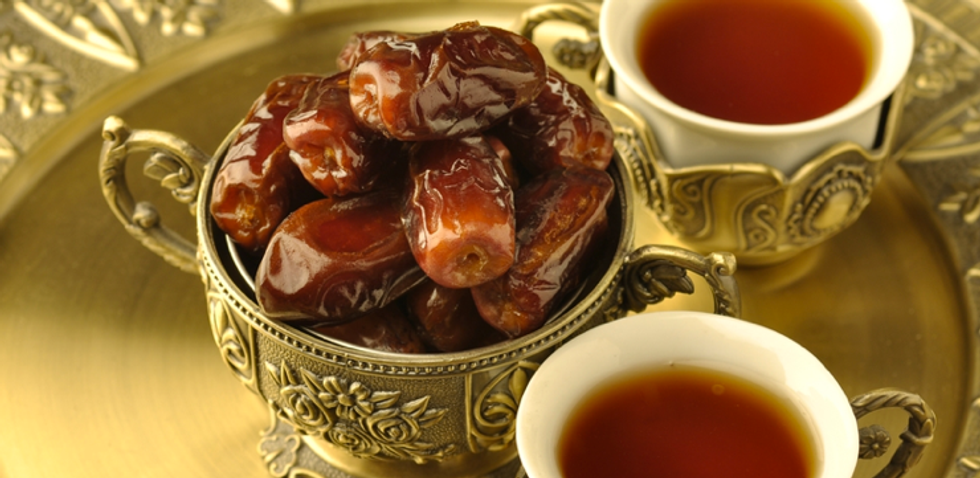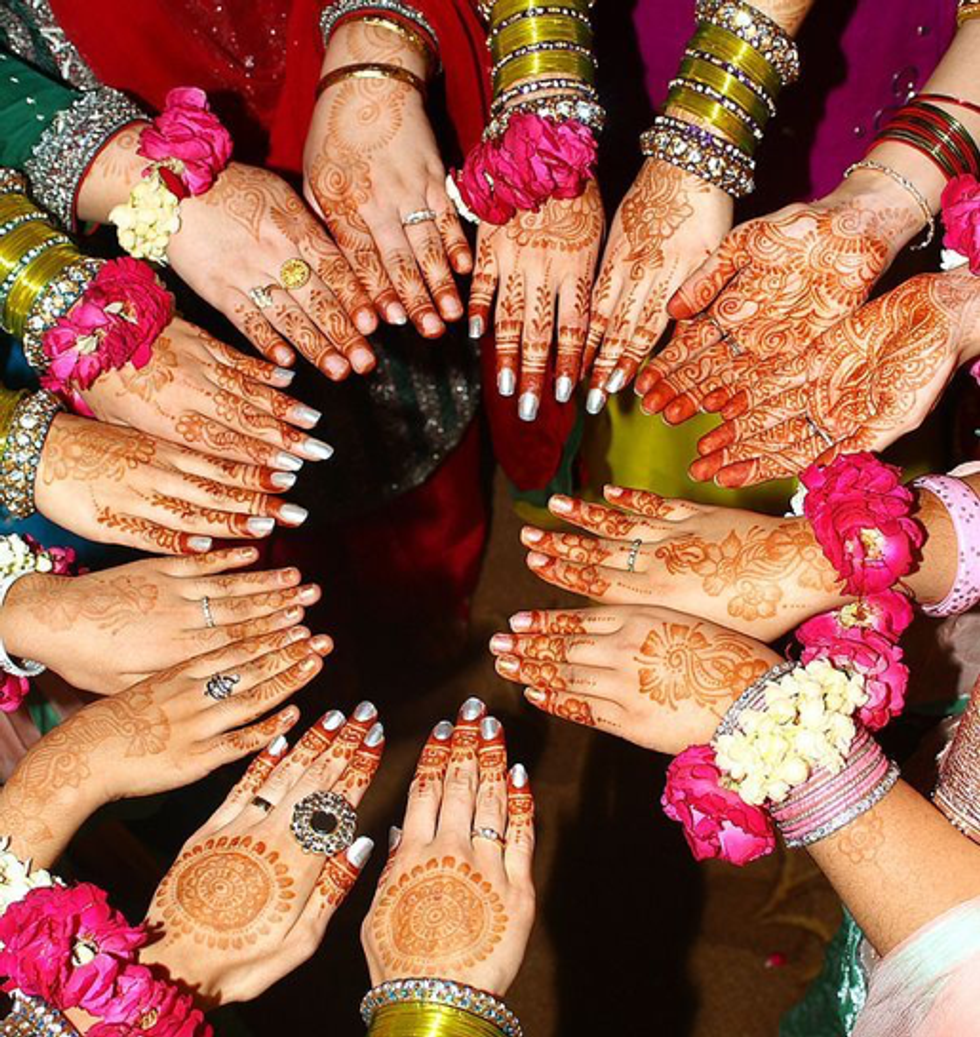As a practicing Muslim, many people ask me what Ramadan is and the purpose of fasting every year. I am sure others have these questions as well so here is a run-down of what you need to know about this holy month for Muslims because it is coming up very soon!
1. Preparations start at least a month in advance
Muslims start fasting, praying, and reading Qur’an, our holy book, more frequently before Ramadan even starts to prepare mentally and physically. Of course, we are so excited for Ramadan we want to practice and abstain from sin to start feeling the deeper connection with God.
2. Ramadan is the 9th month of the Islamic calendar
The Islamic calendar is lunar-based and began after the hijra or migration of Prophet Muhammed (peace be upon him) from Mecca, Saudi Arabia to Medina, Saudi Arabia in 622 CE.
This is why we do not know the exact day of when Ramadan will begin until the crescent moon is sighted. Every year, the new month starts about 10 days earlier because the lunar calendar is 10-12 days shorter than the solar or Gregorian calendar. This year, the expected start date in the United States is May 26, whereas last year it was June 6.
Ramadan is a holy month that is dear to Muslims around the world because it is a month of prayer, forgiveness, and mercy. It is most importantly known as the “month of the Qur’an” because our holy book, the Qur’an, was fully revealed and completed in this month.
The month is broken down into three parts, consisting of ten days each. The first is the time of mercy, then forgiveness, then salvation.
3. A whole month?! But why?!
“Why do you do it??” or “How do you do it?!” are questions Muslims get all the time. The answer is simple, really. It is a test of our submission to God and a method to fight our ego, pride, and sins. It is a time to change bad habits or characteristics and be grateful for our blessings. I even know of non-Muslims who have fasted in Ramadan to experience the truly deep and profound self-awareness.
Fasting in the month of
The Prophet Muhammed (peace be upon him) and his companions fasted just as Muslims do today and they did it in the grueling desert heat with no air conditioning nor other luxuries we have today. Many Muslims still face similar obstacles depending on their career and/or where they live. Some Muslim countries adjust their businesses days in Ramadan to accommodate for the change in routine and open later in the day.
Also, studies say it takes a month to create a habit and because we are trying to be better and do better, hopefully, something good will stick. Research is now coming out as well saying fasting has health benefits like lower blood pressure, reduced cholesterol, and better heart and brain health (Whiteman, 2015).
4. Not even water?!
Fasting in Islam means not only refraining from eating but drinking as well from dawn (before the sun rises) until sunset. A lot of people are very surprised when they find out we can’t drink anything either.
5. The days are long especially in the northern hemisphere
I will be fasting for about 17 hours on the east coast. This may sound difficult but Reykjavik, Iceland will have approximately 22 hour-long fasts! But God makes it easier to fast in this special month and the more difficult it is for someone, the more reward there is.
6. Suhoor and Iftar
Suhoor is the time when we get up before the Fajr (morning) prayers, before dawn even, to eat as much as we can before the fast begins! This Ramadan we will be up before 4 a.m. to prepare the morning meal. We stop eating 10-15 minutes before the Fajr (morning) prayer athan (call to prayer).
Iftar - the moment we all wait for. We all gather around to eat and wait for the Mahgrib prayer athan. Our family sits Indian style on the floor with a tablecloth spread with all sorts of food and drinks on display. Often there are Iftar parties as well either at people's houses or at the mosque. At least we know that there will be an end to our hunger and thirst, some people do not have this sense of security. So, we thank God for everything we have.
We open the fast with a prayer, then a date and water because it is sunnah (the teachings/doings of the Prophet Muhammed, peace be upon him).
7. Giving up worldly desires
Ramadan is a time to reconnect with God and appreciate the blessings. He has given us. Thus, during this month, we limit the time we spend on television, phones, going out, material enjoyment and focus on prayer. Instead, we dedicate our time to completing the recitation of the Qur’an as many times as we can and other forms of remembrance.
8. Every good deed is multiplied by 70
When you do one good deed, it feels amazing. But in Ramadan, every good deed is multiplied by 70 and that feeling is indescribable! This is why we get so excited and yearn for the days of Ramadan in which we can gain lots of good deeds and be cleansed from our sins. People love to give charity and go above and beyond in this month.
9. The gates of Heaven are open
Abu Huraira reported: The Messenger of Allah, peace and blessings be upon him, said, “When the month of Ramadan begins, the gates of the heaven are opened and the gates of Hellfire are closed and the devils are chained.” (Sahih Al-Bukhari)
All eight gates of Heaven are open, the seven gates of Hell are closed, and the devils are locked up so that one may concentrate on their connection with God. God wants us to be forgiven, to take advantage of this time and this is an example of his mercy. Of course, there are still temptations and one has to fight against these desires (this concept is known as jihad), but it is still easier to be virtuous in Ramadan.
10. Taraweeh
Taraweeh is a special type of prayer that Muslims perform in the month of Ramadan. It is not mandatory, but it is highly recommended. We gather at the mosque after the fast is broken for Isha (night) prayer and then the taraweeh start right after.Last Ramadan, we would begin at 10:30 p.m. and finish at 12:15 a.m. I would say approximately 85 percent of these prayers consist of standing up as the imam recites from memory one juz or chapter of the Qur’an, which consists of 20 pages, every night. Specially for Ramadan, we have a hafiz (a person who has memorized the Qur’an by heart) who comes from England to lead us in prayer. However, because he wishes to be back with his family in England for Eid (the celebration once Ramadan is over), we have to finish the Qur’an early so he reads more than one juz a night.
Even after a long day of fasting, we love to stand together and listen to his beautiful recitation of the Qur’an. It is a feeling like none other standing with one’s brothers and sisters in unity, regardless of race, sex, wealth, status, etc. We are all one as we strive to better ourselves and we can feel the hope, renewal, and closeness to God in the air.
We finish around 12:15 a.m. and sometimes we can’t keep our eyes open on our 20- minute drive back home and sometimes we are wide awake. Often my siblings and I would stay up until suhoor time because it would be too hard to wake up just three hours later. Many of my friends made this a habit, which one can afford if they don’t have work the next day.
11. Eid al-Fitr
Again, we wait for the sighting of the moon that signals the end of the month and the beginning of the next. The expected date this year for Eid al-Fitr is June 25th.
The night before Eid is called Chaand-Raat in which we celebrate and wait to see the sighting of the new moon. During this time, we sing, eat, and women and girls apply mehndi (henna).
The next morning, we have prayers at the mosque and then celebrate with family and friends with lots of food, drinks, and dessert! In Muslim countries, festivities last for days, going on through the nights! However, in Western countries, it can be difficult to get time off school or work, but we make do.
The closeness we feel to God in Ramadan is pure and unadulterated. Ultimately Ramadan feels like a spiritual cleansing and I feel fresh and anew. We are grateful for the chance to have lived another Ramadan and yearn for the following one to come along for the opportunity to earn more good deeds and have our sins erased.
Whiteman, H. (2015, July 27). Fasting: health benefits and risks. Retrieved May 19, 2017, from http://www.medicalnewstoday.com/articles/295914.ph...
























